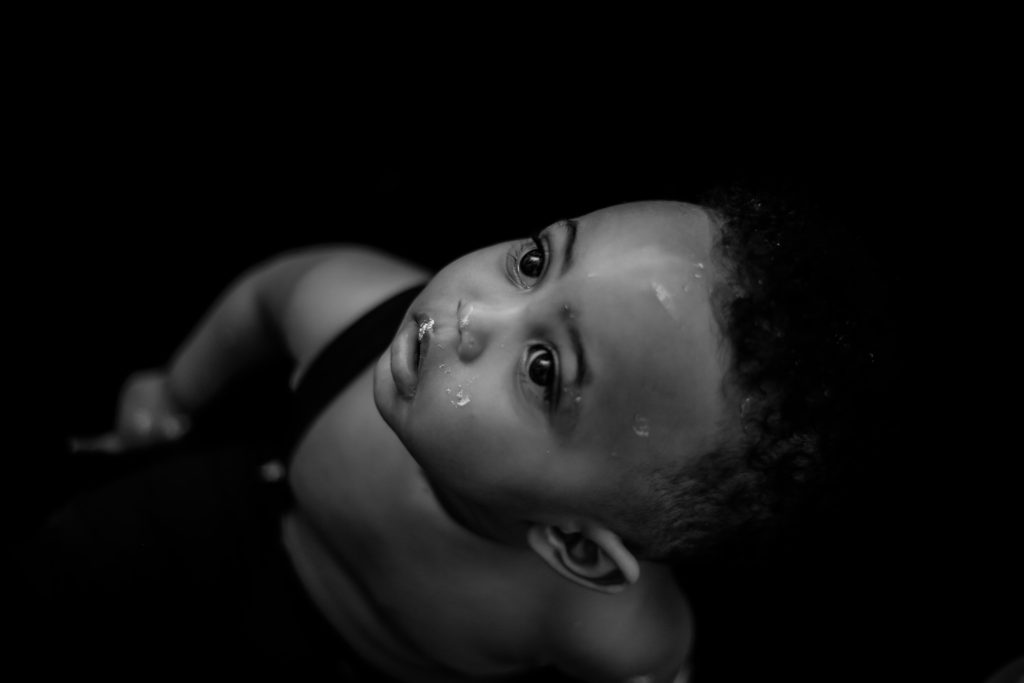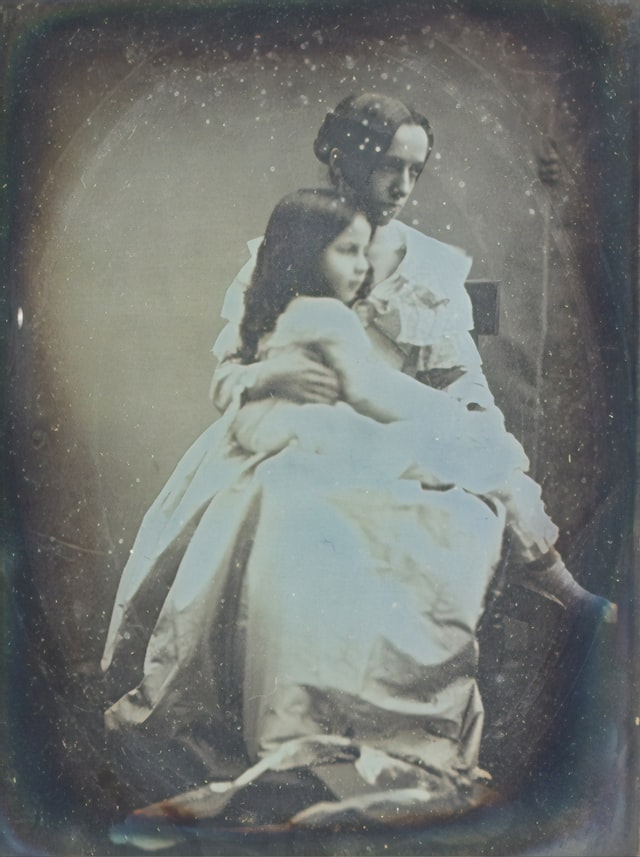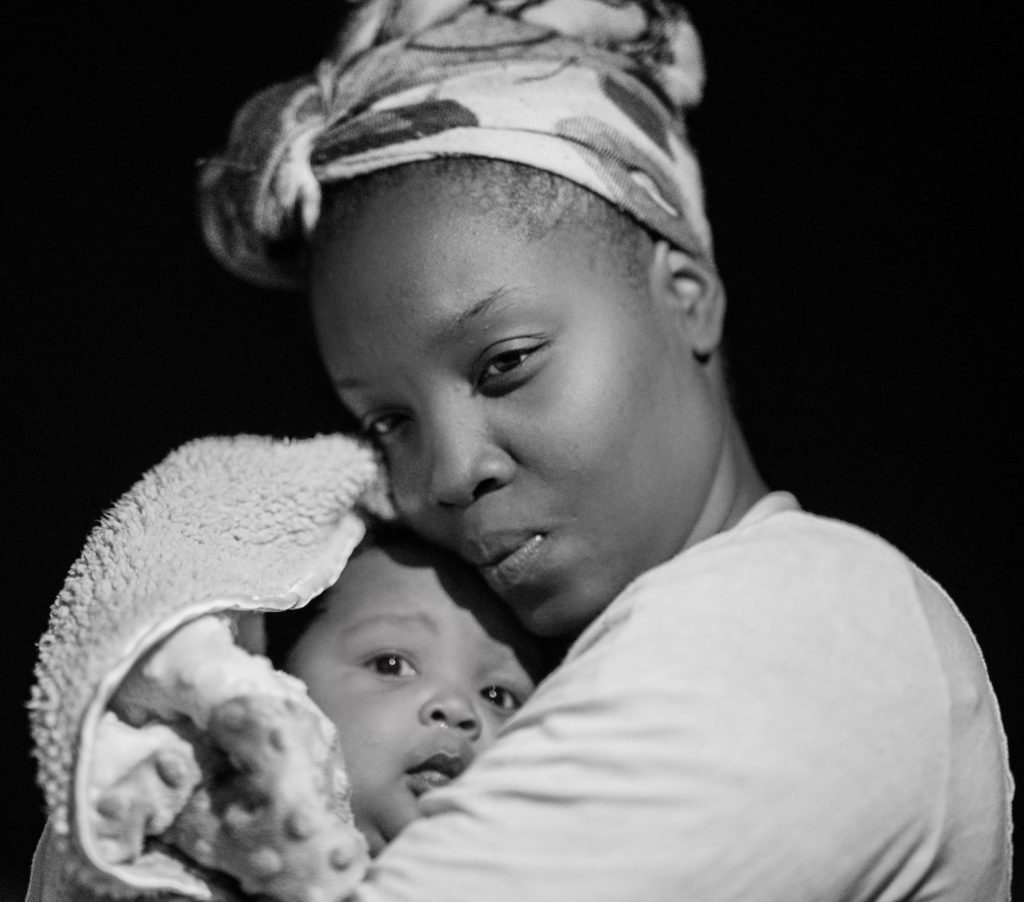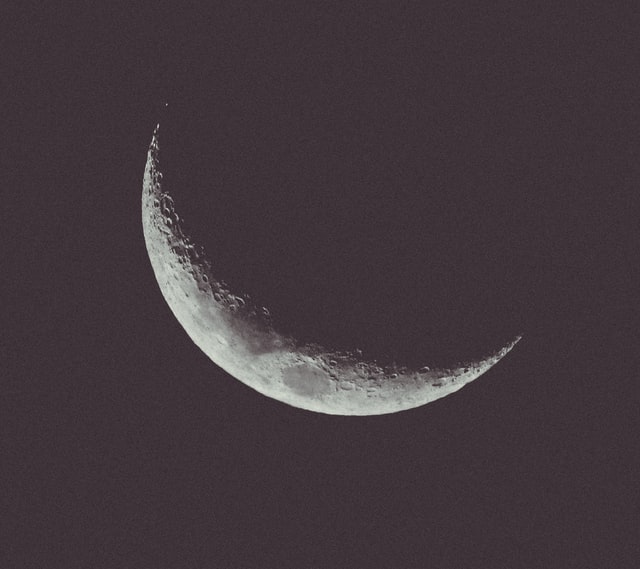Bodies have rhythms and arcs already encoded– pulse and breath, birth, growth, reproduction, nurturing, and decay. Writers find these embodied patterns in story. Meanwhile, poetry performs its nonlinear subatomic behavior. Pulitzer Prize winner Annie Dillard writes, “the breeze is the meerest puff, but you yourself sail headlong and breathless under the gale force of the spirit” (Pilgrim at Tinker Creek, 1974). We expect the novel to work differently from poetry, to be more socially engaged, mapable in time and space, more pedestrian, in a good way. But a novel creates a larger discursive body in which the human body can speak, its pleasures and pain included. The visionary, fast-moving electrical brain is here too.
It is not the function of the poet to relate what has happened, but what may happen — what is possible according to the law of probability or necessity.
Poetics of Aristotle (384-322 bce) Translated by S.H. Butcher in 1895
Catharsis. Aristotle tells us that tragedy enables a cleansing of emotions, especially of fear. Hardship, when it is deeply distressing and exceeding the our ability to cope, is trauma. It changes the body, challenges the brain, and the ability to bear and sustain life. It splits the individual from her society and requires metaphorical stitches. The effects of trauma on individuals and collectives is explored by family therapist Resmaa Menakem in his influential book, My Grandmother’s Hands. The word tramua comes from the Greek word for wound, but not all openings are wounds.
“But this door stayed open. It made me belong to the living.”
As I write this historical fiction, I often think of Dillard’s novel, The Living. Life and death take the stage to heal the wounds. Artists displace our habits of seeing. They teach us to quiet down and look again. Writers help us brace ourselves, anticipate, understand, and heal. Poets deliver difficult messages dressed in beauty or simplicity. They tell us we are not alone even when we must be free.
“Mother held Eliza and sang those old songs that rise and fall so children think life is going to be easy.“
The Narrative of Otis Roche “Eliza Roche 1828”
Childbirth
The Compromise includes three stories of women in labor, each with increasing risk, requiring endurance, and which open the mind.

Humans may feel pain in ways that are very similar and still interpret pain differently. Learning to make meaning out of pain is valuable indeed. Midwife Mary, a free Black woman, delivers babies to women of various backgrounds who cannot access doctors. She uses practical and natural methods. Mariah, her assistant in training, already understands the internal organs of animals, has seen people suffer death from natural causes, and has used herbs in healing. She is eager to increase her knowledge through midwifery, which proves deeply transformative.
Close to midnight, I visited the library to look at books with pictures. There were anatomical drawings to review, even more detailed and beautiful than I remembered. The botanicals reminded me of the witchhazel bush on the hill. I read that breadseed poppies reduced pain, but the trick was knowing how much to give, and I had no idea. Corn whiskey was the sedative where I came from.
I slept fitfully and happily like a child before a birthday, and that’s exactly what was coming.
The Compromise, “Midwife Mary 1844”
Dara Smith, a free married Black woman is experienced with labor and childbirth, but she has a high-risk breech pregnancy. Mariah must assist the midwife in turning the fetus and then delivering.
“Keep your own breath deep and regular,” Midwife said to me. “Help this life-giving woman breathe the same. You push against the wall to hold her up, Mariah, and breathe into her ear. It’s time to push. Help her bring this one home.”
I wiped Dara’s neck and brow maybe a hundred times, and I let her grab my arms as if to break my bones. She hit me on the side of my head once, and Midwife blocked her next blow.
“The sense drains out for a time,” said Midwife. “She’s transitioning and does not mean to hurt anyone. Use your knee to support her back. She can’t hit you back there.” I shifted. “Now use your forearms to help her push down.”
I nodded. We found a rhythm. This was a wagon wheel that had to rock out of the mud into daylight, so help me God.
After time, the woman’s agony gushed out, as long as a river, and a dark red baby girl was born.
“That’s it,” said Midwife. “Well done!”
The infant was quiet at first but she announced herself with healthy squalling. We heard the whooping and cheering outside. “Praise the Lord!” a man cried out. “Born into freedom, praise the Lord!”
The Compromise, “First Birth, 1844”
Knowledge of Birth
My own experience giving birth is evident here. I went through a transition much like the one I describe. My son was delivered after weeks of being breech. He turned and was delivered posterior, face up. My somewhat higher-risk delivery was accomplished with the skill and kindness of others, midwife and Ob/Gyn, and without pain management other than breathing. Along with a brilliant baby, I was given other gifts: vast wonder and committment to life. Though it is explained by shifting chemicals in the brain, to this day, the deep knowledge of birth draws tears of joy.
I cleaned up the floor, warmed the stove, rolled up my apron, and pulled my boots back on. The crowd on the front porch hushed as I walked by.
“Baby girl,” I said. “You got a strong daughter and a healthy wife.”
“Praise the Lord. Praise the Lord,” they said.
I wandered home with more happiness in the rising sun than I could ever remember. The angle of the light on the dry grass dazzled my eyes. So this was day after night. Sometimes we passed on through, like a door had opened and closed. But this door stayed open. It made me belong to the living. All our lives were built here.
The Compromise, “First Birth, 1844”

“Something changed in me. It went missing, and it was envy.”
The Compromise “First Birth 1844”
Childbirth taught my embodied brain the archetype of birth. If the agony birth is equal to that of death, there could be knowledge of freedom in the end. The Pulitzer Prize winning poet Galway Kinnell says, “[E]ven for those that don’t flower, for everything flowers, from within, of self-blessing.” I give Mariah strong empathic flowering.
After Dara Smith and her baby girl, something changed in me. It went missing, and it was envy. When I served the lady scholars at table, their chatter did not annoy me as it had. What was so important in the lives of rich girls had rankled me all those years. They were like blue jays and squirrels squabbling over their own affairs. But after that first birthing, they became girls again making the natural sounds of human life. Their sound gave me joy.
The language given to my character was influenced by transcendentalist Margaret Fuller, Recollection of Mystical Experiences (1840). She writes, “ I saw there was no self; that selfishness was all folly, and the result of circumstance; that it was only because I thought self real that I suffered….” These insights came early in her life before she became a mother, which was shortly before her death at sea in 1850.
Knowledge Applied
How far will empathy take us? Mariah is called to a second birth in a wealthy part of town. Francine, a white girl from Georgia faces her deamons and her confinement. She is left to labor alone away from her family in order to conceal their shame. Strangers reduce Francine to an inconvenience.
“There is no place that wants us, not here and not back home.”
The housekeeper said, “The girl upstairs is bewitching this house and none of us can sleep. Now you’re here, so we might be done with it.”
“Upstairs is a problem that needs to go away,” said a maid, “hopefully before dawn.”
“Has she been laboring alone?” I asked.
“For two days and a night,” said the housekeeper. “Mister and Missus are away and it's a good thing they be too far to hear that wailing.”
“A first baby can take time,” I said. This made the women look down with dread. I wondered why they had waited two days and a night to run for the Midwife. “Did you give her anything for the pain?”
“Godfrey’s Cordial. Emptied the bottle yesterday. We will do whatever you ask to stop the crying up there.”
The Compromise, “The Back Door 1844”
The opium slows the labor, exhausting Francine and drugging the baby. This requires the Midwife and Mariah to work very hard to manage the labor and keep the mother and baby alert and breathing.
“This won’t take much longer. You’ve done the work, my darling. But now you let Midwife Mariah massage you gently so that you are ready. Think of a Georgia peach, nice and ripe.”
Midwife Mary prepared the tinctures and left me to whisper, breathe, and massage a girl who looked like she would rather be drawn and quartered than let me touch her.
“Are you going to take my baby away?” asked Francine as she shrank away from me.
“Now why would anyone do that?” said Midwife from across the room, but I shot her a glance.
Francine whispered, “I want my mother.” Then she grabbed my arm with surprising strength, saying, “Don’t let them--” Pain took the words out of her mouth.
Postpartum, another difficulty confronts them, one of the reasons Francine cannot keep the baby. She refuses to suckle him and succumbs to depression. There is suicidal ideation. This is a likely effect of too much opium and, I think, her social desperation in a body that cannot find its way. Young mothers carry their own and society’s hardest hardships.
Midwife looked at me without sadness. “Francine is white. The daddy dark, black Indian, I should think. Half-breed is a coarse word, too coarse for the nursery.”
Francine found the energy to cry out and a contraction delivered the placenta.
“That's good!” said Midwife who had the bowl ready. “It looks as it should, see Mariah? Now Francine, let that little one take your breast so your sweet mother’s milk comes in. Hear that cry? Feel the strength in his warm little body?”
“No,” said Francine. “Let us go cold.” Her voice was plaintive, cast with an otherworldly tone. Her soul was there, but invisible like stars dimmed by sunlight.
Midwife and I looked at one another. Baby was crying like a buckling kid without a mother. Midwife was patting Francine’s hands. I sang her name, “Francine, Francine,” like a mother would, like I sang to Molly sometimes. I stroked her face and her hair.
Francine looked straight into my eyes to say, “There is no place that wants us, not here and not back home.” Then she turned away. The wind stilled. There was a little silence while the baby sucked his hand.

Francine refuses her baby and herself in a world of woe. The baby grows weak and the midwife knows that the risk continues. The women sing “Wayfaring Stranger.” The three women accept what could come. Then…
Francine’s eyes flickered and her hand turned under mine. Midwife took her other hand and sang softly in a deep contralto.
I said, “There is no reason for a woman to be alone where everyone is bound to go.”
“That’s so,” said Midwife. “One alone does not prosper those fields.” Francine sighed with some relief.
Midwife said, “Nature’s coming back in, filling those holes with life. Mariah, you get the milk when the housekeeper brings it. Let’s give Francine chamomile and raspberry in warm milk. We’ll add honey for Baby if we get it."
The antagonist, which is the shadow of death, is kept at bay through supreme effort.
There is breath in song, solace in the taking of hands, and medicine in nature. The characters “fill the holes” for one another, like a molecular exchange. Mother and child survive even as their paths divide forever. This is another trauma that my story of bodies can tell. This part of the story might align with “intrusive empathy” called for in suicide therapy, CCT therapy. Young women need not face Francine’s decision entirely alone, in story or in life. The antagonist, which is the shadow of death, is kept at bay through supreme effort. No hero is braver.
"When her nightmare is over, she’s going to start life again, back in Georgia. She’s all of what, fifteen?” Midwife directed her soft brown eyes at me. “Now, don’t you cry, Miss Mariah. Francine and this little dark halfling need you now. She has a big hill to climb all the way back to her home in Georgia. She may leave her baby in Missouri, but he will never leave her soul.”
It felt like something ruffled my hair, like a cloud of morning stars came down and asked me to step inside. “What has to be done?” I asked.
“You can help find parents, those that can love him. That’s what has to be done.”
“I can find them,” I said, “and I mean that. I’m from a family of what you call halflings, and we never thought we were half of anything.”
“Yes, dear,” said Midwife Mary with a warm smile. “Our guiding stars are always here, like our roots. They are here whether we see them or not.”
Mariah takes the baby home to the academy but must stay in the carriage house. A goat arrives to provide milk, and a few months later a Creole family comes seeking a baby boy.
Literal Wounds
Fear and pity may be aroused by spectacular means; but they may also result from the inner structure of the piece, which is the better way, and indicates a superior poet. For the plot ought to be so constructed that, even without the aid of the eye, he who hears the tale told will thrill with horror and melt to pity at what takes place.
Poetics of Aristotle (384- 322 bce) Translated by S.H. Butcher in 1895

We all have bodies. Writers and filmmakers exploit the body as they draft their images and drag their characters through one fiendish experience after another. The scenarios are often kill or be killed, die or be saved. This has been dubbed “trauma porn,” and historical settings have amble place for it to fester. It may appear that the way to survive is to feel very little. But I claim catharsis in the story structure because of the guided responses to trauma. I hope readers agree.
The third birth opens a spiritual world. Mariah’s knowledge is insufficient and healing the body is not possible. The antagonist wins the battle. The protagonist is heroic in her full-on response to catastrophe. I am influenced by the work of Jon Kabot-Zinn in his work Full Catastrophy Living on mindfullness applied to medicine.
On the surface, Mariah’s return to Stoneville is a homecoming, but this was also a set-up. Hester escapes and Mariah is left to deal with the law. Deputies come on horseback looking for evil-doers who do not exit. Sweetie exists, a brave pregnant girl following the North Star out of slavery. Mariah finds her eating berries atop a wild horse and transports her to the Stoneville cabin. But the girl does not trust Mariah’s offer of kindness.
I called for Sweetie, but it felt like I was talking nonsense to the moonrise. The cliff gave me a view of the red stone quarry below and the road to town. I called “Come back!” and heard the echoes from the quarry. Come back. Come back. Sweetie had been enslaved all her fourteen years, so she might be hiding from me, afraid that I’d tie her up and sell her or divide her from her newborn child. She had no reason to think otherwise.

In this kind of spiritual opening, help is conjured because it does not arrive in the flesh. Mariah sees Otis bring the girl back to the cabin, but he has a way of disappearing in strong light.
Molly raised her head out in the field, so I stood and concealed myself. The leaves sweeping across the road covered any sound. A tall man, whose bearing I knew, was walking beside a little grey horse. Sweetie, belly bigger than anyone, straddled the horse and was held up by the walking figure beside her.
“Otis? Is that you? You brought her back!” I slapped my face and rubbed my eyes. Then I ran down the road.
“Ah-h-h!” It was the cry of a woman in labor. I reached for Sweetie, her face tormented. Otis looked like he was feeling the girl’s pain. We guided the horse toward the cabin holding Sweetie from both sides.
I said to Otis, “You know they’re looking for you? You shouldn’t be here.” His eyes landed on me for a moment. Then he disappeared into the blinding sun from the west. I pulled the girl down onto the porch. The little stallion was bloodied pink on his flank. He trotted away dragging the rope.
Sweetie was real, and I went to work right there on the wood of the porch baked clean by the sun. Her dress was soaked through.
Sweetie shows the symptoms of eclampsia, a disease of pregnancy that strikes quickly and can cause maternal death. It affects 1 in 2,000 pregnancies. The complication preeclampsia occurs at a frequency of about 1 in 20 pregnancies.
“Ah-ee!” She was alive but not fully there, head rolling and eyes fluttering. Her mouth was open and her tongue was stiff and dry. Her legs and hands were swollen like melons. I had attended births, but not one like this. Midwife! I need you. Midwife! I need you now.
I was shaking with fear. Otis came to help me wrestle the dress off.
I put her on her side and ran to get blankets to prop her up and set water to boil.
Otis called out, “She’s leaving!”
“What’s that supposed to mean?” I gritted my teeth and turned back.
“This girl is getting free of her pain,” he said.
I was kneeling beside her trying to put a midwife’s calm in my voice. “Stay with me, Sweetie-girl. You’re not done yet. Stay with me. Soon, you can push this baby out.”
Her pulse was bounding. I lifted her eyelids, and the whites were yellow. She vomited, what little was there, and the shaking began. Her back arched, her feet clenched, and her hands fluttered. The earth stopped. This was epilepsy, the Sacred Disease, and a complication of pregnancy. Fools thought it was a bad spirit. What looked like twins was probably a liver swollen and running over inside. Midwife, help me. God help me.

Lack of Moral Certitude
Humans do not live in easy, unquestioned correspondences with correct and incorrect responses to hardship. Our differences are endless, and so are the nuances of response. We need the artist’s estrangement from habits to see and feel those nuances. We need to feel more, not less. Stories pass from hand to hand to do this work. Otis tells her the name of the disease.
“Yes, but there’s no cure!” I cried. “Midwife Mary said so! Knowing a thing does not make it go away. You disappear whenever you want, so you’re not here, not for real. I’m trying to keep this one alive. If I do right, she won't have to die!”
“Everybody dies, Mariah.”
In a short time, Mariah is not able to detect signs of Sweetie’s life. The scene that follows is accompanied by an old English song, The Death of Queen Jane. The queen asks the king cut her open to save the child.
Her eyes and mouth were open, but grey silence was filling them. “Where did she go?”
“Sweetie says she wants you to save her baby,” Otis said. His voice was like a harmonica, too many sounds for one breath.
I looked at him. “Who are you to tell me that? I can’t keep a baby alive that way.”
“You can try. She wants you to save her baby.”
“All mothers say that, you fool!”
“The only way is to get him out now.”
“You going to help me?”
“Yes. Whatever happens.”
I nodded, took out my knife that still hung from my waist. I prayed to the sacred wood and to the elk and the bear, and I don’t know what else. A calm came and took my hand.
Mariah makes the wound. Some readers will hear echos of the passion and interpret accordingly. The protagonist acts bravely and with single focus but fails to save either life. This spirit world is not without ambiguity. Consider the doctors and nurses who cannot save a life and decide on palliative care. Prepare for the lack of moral certitude as death approaches, and of course it will. The scenes of death and burial swirl with past and present, real and unreal, like leaves in the autumn wind.
Prepare for the lack of moral certitude.
Stories help us cope and heal because we live both within and beyond the body. If we, the readers, can identify with characters as they act and respond to a shared history, together we confront hardships and foster our resiliance. Literature works because language and culture mediate potential emotions and beliefs held in common. They are alive, unique and constantly changing.
“What the poet is looking for is not the fundamental I but the deep you.”
Antonia Machado
